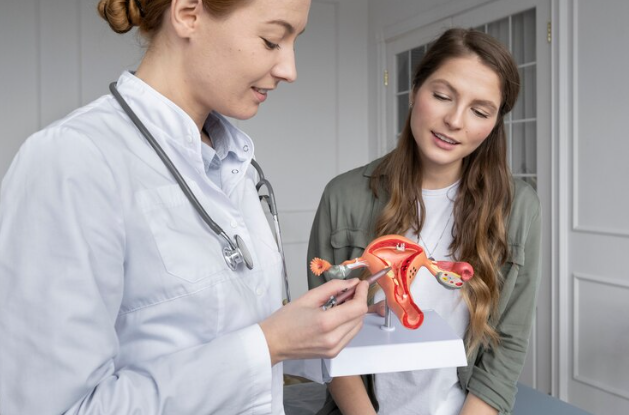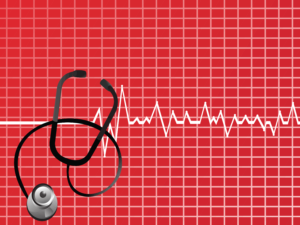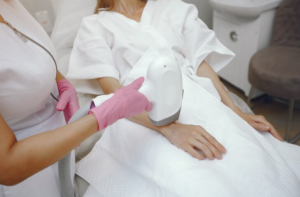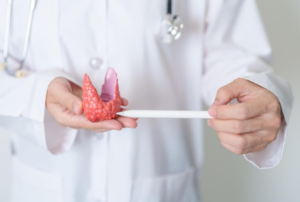Health is a sector in which women have always focused on the multitasking concept. In the midst of the day-to-day pressure, some of them may be overlooked or not highlighted quite regularly—like the chances for colon cancer regular screenings.
Many people associate colonoscopies with a male gender or an older individual, but it is a procedure that’s of primary concern for women as well. Knowing what colonoscopy is all about and what it does can encourage you to be in control of your health.
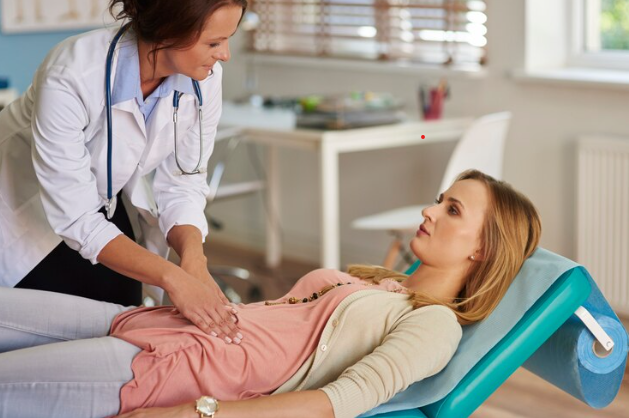
What is a Colonoscopy?
Colonoscopy is a surgical procedure in which a doctor gathers detailed images of the inner surface of the large intestine, also known as the colon. This process uses a specially designed, thin, long, and flexible tube known as a colonoscope, which has a camera attached to its front.
This examination has the major purpose of seeing areas of abnormality which may include polyps, infiltrating tumors, or even inflammatory changes. Such surveillance helps the doctor to draw critical conclusions in contrast to information about your colon’s area of concern and it’s health.
Although it sounds like a scary experience, the process takes about half an hour and is done with a light anesthetic. This means that you should not experience any pain during the procedure itself.
The method of colonoscopy is of vital importance in armoring against conditions like colorectal cancer, especially in patients with no observable symptoms. Most of the patients with symptoms are a few exceptions, the majority of cases do evolve or develop but not for a very long time.
The Prevalence of Colon Cancer in Women
While the common notion stands that colon cancer is a male-centric disease, the facts do say otherwise. Women too can become victims and they must realize their sensitivities to the condition.
The American Cancer Society indicates that after breast and reproductive organs; colon cancer appears in the third position among the most common cancers in women. This is true when men all cancerous cases have the most, but the society threat cannot be ignored by women.
Risk factors also include age cut-off. More than 80% of the incidences occur post-50 making it very important for people to undergo screening on a regular basis.
Risk factors have other dimensions based on the demography. Diet, lack of exercise, and heredity among other risk factors contribute to them becoming victims.
It is necessary to educate them; if they know these risks women can make their efforts towards screening and prevention techniques.
The Importance of Regular Screening for Colon Cancer
Regular screening for colon cancer plays a crucial role in early detection. Many cases are asymptomatic, meaning individuals may not notice any warning signs until the disease has advanced.
Screening can uncover polyps before they develop into cancer, allowing for timely intervention. This proactive approach significantly improves survival rates.
Women often underestimate their risk. The truth is that women can just as easily be affected by colon cancer as men. Awareness and regular screenings empower women to take charge of their health.
Additionally, modern screening methods have become more comfortable and less invasive over time. With options like stool tests and flexible sigmoidoscopy, there are choices available to suit different preferences.
Making screening a routine part of healthcare helps reduce anxiety surrounding potential issues down the line while fostering an overall culture of preventive care.
Common Misconceptions about Colonoscopies for Women
Colon cancer is also a disease that is common in women. However, there are lots of women who believe in myths about colonoscopy procedures which tend to increase their stress. One of them is that only men need it. That is untrue. Both men and women have colon cancer. So where should women stand regarding their health?
Many women believe that colonoscopy is extremely painful. There may be some discomfort during preparation or the procedure but usually, sedation is offered so that the experience is calm and stress-free.
Also, some people believe there’s no need to have a colonoscopy if there aren’t any symptoms present. This does overlook the fact that colon cancer often occurs without any clinical features.
Several women stoop down to this meaning that they feel that approaching this screening at an early age will attract judgment. However, the guidelines suggest that screening for average risk should commence at the age of 45 for both men and women.
It is prudent for women to appreciate these false notions to avoid excuses for neglecting their health.
Steps to Prepare for a Colonoscopy
One may be intimidated by the preparation of colonoscopy but it is very important in order to achieve the correct outcome. Begin by speaking to your doctor regarding the current medication you may be under. Some may have to be changed or omitted completely.
Ensuring that, usually, a few days before the day of the procedure you will, in most cases, be put on a low-fiber diet primarily. As main sources of nourishment, deal with clear liquids like broth, tea, and apple juice. You may want to refrain from anything that has seeds or even pulp.
The most important step is the bowel prep. This involves drinking a laxative solution that shall be prescribed to you which would help in cleaning all the intestines properly. This is an unpleasant part of the procedure but it is important in order to see your intestines clearly during the examination.
Electrolytes are also very important so try not to sweat too much during this stage of the procedure. Do not hold back and ask any and all questions if you are not entirely sure about the instructions given to you by your doctor as it will raise the level of comfort and decrease anxiety on the day itself.
The Procedure: What to Expect
When you arrive for bowel examination under anaesthetic (colonoscopy) the staff assisting you will direct you at each step of the way. You will go first for a change of clothes before your physician. They will go through it step by step so that they do not make you stressed at any point.
As you prepare yourself, the nurse will also inject a sedative into you. Most people report that they feel postpartum sedation which is sleepy yet cozy. After this step, you will then lie on your left side.
The operation itself takes around half an hour on average. A thin tube with a camera attached to its end called a scope is placed through your rectum and maneuvered upwards to the large colon. The doctor then checks your intestinal wall for any abnormal growths or polyps.
Discomfort in the form of pressure or cramping may be experienced at this time, but it would not be painful as you are sedated. The last step will take some time since you will require some time at the recovery unit till the anesthetic completely wears off.
Post-Procedure Care and Follow-Up
When resting after a colonoscopy, patients most efficiently recover from the injection strain. One needs to call someone to pick them up and drive them home. In the first few hours after the operation, it is very important to rest completely.
You may feel some minor cramping or have a sensation of bloating. This is natural as the air utilized during the procedure is expelled from the body. The emphasis should be on comfort and plenty of fluids.
Your physician will give you particular directions concerning dietary and activity restrictions following your appointment. Stick to these recommendations to facilitate the recovery process.
If you exhibit any other abnormal symptoms such as excruciating pains in the abdomen, an exaggerated increase in temperature, or excessive loss of blood, seek the medical services panel as soon as practicable. Such symptoms may be indicative of potential complications that require intervention.
A further appointment may be made to review any results of the investigation and then discuss and plan when the next and perhaps other future screenings should take place. Now is the opportunity for you to inquire about anything to do with your care or what health issues you may have in the future.
Empowering Women to Take Control of Their Health
Taking responsibility for one’s well-being is very important as it exudes a good quality of life. For women, once they achieve an understanding of the importance of colonoscopies, it will have of great impact on the early diagnosis and subsequent prevention of colorectal cancer. Mammograms need not be done only for older women; they should now also be done for aging women as well as those with a family history of womb issues.
Fears can be reduced through education about the myths that often surround the procedure. It is common for many women to fear the screening considering the information that circulates regarding pain or the need for the screening. This is important to make good choices.
If the plan includes preparation, it can be daunting, but having competency from the healthcare personnel makes things easy. When patients understand what is going to happen during a procedure, they are more likely to be relaxed than stressed.
Follow-up care is equally important in this regard since any changes and follow-up appointments are critical to the patient’s overall well-being and health.
It is critical to educate yourself and take preventative actions. Women are entitled to reliable data concerning their bodies and the options for maintaining good health. Regular screenings like colonoscopies provide you with the opportunity to take important measures to ensure your health for the future.
